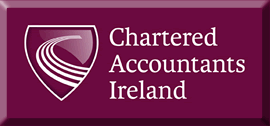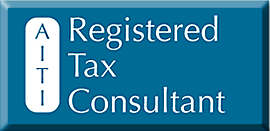Thinking of starting a business?
Top tax tips for starting in a business
The decision to set up a business is an exiting and a somewhat daunting one! Tax will always be a key element of any business and it is essential to get your tax affairs in order from the get-go and to make sure your tax system ties in with your business idea. Ensuring you are on top of your tax affairs will in turn ensure that your money works for you, and not the other way around.
A bit of time spent sorting out your start-up’s tax affairs in beginning will ensure its smooth running and avoid unnecessary and expensive mistakes down the line. The comfort of knowing that everything is in order will allow you to spend the early days focusing on the other essential aspects of running a business.
The Irish tax system places a number of demands on businesses, all of which mean deadlines must be met, forms must be completed and payments must be made at different times of the year. Couple this with the fact that not only does tax law change every year but that it stretches to thousands of pages, and you can begin to understand starting your own business can be daunting.
So what should you do?
<!–more–>Tax decisions will come along at every stage of a business’ life cycle and can be key to its success or failure.
There are some top tips which will make the task of getting up and running in business easier, both in the immediate and long-term. They include:
1. Get professional advise - talk to an AITI Tax consultant http://www.taxinstitute.ie/services/aboutRegTaxCon.aspx.A Register Tax Consultant will save you money, time and hassle and be central to making your business grow.
2. Put in place a clear legal status for your business. Will I set up as sole trader or a company? This will affect not only how you register for tax but also how the income from your business venture is taxed. Companies,as opposed to sole traders, may be bound by significant rules such as the Companies Act and have additional reporting obligations to, say, the Companies Registration Office (CRO).
3. Registration for tax – starting a business brings different tax requirements. Requirement will differ depending on your business structure (sole trader or company), trading activity (operating domestically or internationally)amount of people you are employing and the type of taxes you pay – income or corporation Tax, PAYE/PRSI, etc.
4. Familiarise yourself with all of the payment and return filing obligations for all of the taxes your have registered for. There are myriad deadlines for payment, return filing information filing that you need to be aware of. For example, depending on a business’ turnover level, different VAT filing/payment obligations apply.
5. Make the system work for you - your business strategy must drive your tax strategy. Make sure you have the right tax structure in place, avail of all reliefs and entitlements that reduce your tax bill, make the correct payment at the correct time and in doing so, get greater use out of the your hand earned money.
6. Retain records relating to your business’ tax affairs for six years – this an obligation under tax law. Equally, familiarise yourself with the revenue audit process.
7. Weather you are a company or a sole trader, keeping up to date with and meeting your tax obligations can be hugely simplified though using Revenue’s Online System, ROS.
8. Find out where your local tax office is and who to contact with issues relating to your business’ tax affairs? This can prove invaluable in helping you do business efficiently.
Patrick O’Rourke,Partner okellysutton,Kildare town.Kildare. www.okellysutton.ie
If you enjoyed this post, please consider to leave a comment or subscribe to the feed and get future articles delivered to your feed reader.


 O'Kelly Sutton
O'Kelly Sutton
